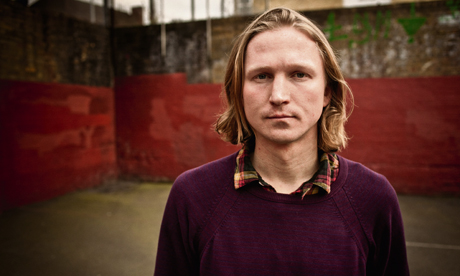Interview: Joe Dunthorne on his new book, Wild Abandon
Joe Dunthorne – poet, a novelist and all-round ‘good egg‘ has gone and done the impossible and followed up his debut novel, Submarine, with a book that is more uncomfortable and hilarious than you could possibly imagine.
With the subtitle ‘The last day on earth is coming. Bring your own booze,’ Wild Abandon is proving such great hit for the summer that the Citizen had to find out what make this brilliant young author tick.
DD: Three years have passed since you published Submarine. What have you been up to?
JD: I’ve been up to lots of different things but, primarily, I’ve been writing Wild Abandon. I spent time in a few different communes in the UK and interviewed a lot of ex and current communards, for research. I can confirm that I have no natural aptitude for meditation, sacred dancing or gardening. Other than that I’ve helped set up the Ministry of Stories, a creative writing centre for young people in Hackney. It’s inspired by Dave Eggers’ 826 project in the US.
What looks, from the street, to be just your average neighbourhood store selling day-to-day products to the local monster community (neck-bolt tighteners, human snot, eyeballs) is, in fact, a writing centre, where young people can come to get free one-to-one tuition. We’re always looking for new supporters and volunteers.
DD: Submarine and Wild Abandon use very distinct voices of young people. Do you like working with voice?
JD: Absolutely, I’ve always been led by voice more than anything else. It’s a way of speaking, a tone, a turn of phrase, a particular metaphor that usually kickstarts my fiction. Young people tend to have more idiosyncratic speech patterns so that can be fun to explore.
DD: What comes first, the voice or the story?
JD: Ninety per cent of the time, the character/voice. The rest of the time it’s a story or, worse, ‘a concept’ in which case the end product often winds up being over-determined and forced.
DD: You live in Hackney now but Wales (especially Swansea) seem very important to your writing? How important is it to ‘a sense of place?’
JD: From my own experience, place has been really important. Swansea is a dream to write about: it has a mix of beautiful landscapes, bad town planning and wonderful, strange, witty people. I don’t yet feel able to write well about London. I need a certain level of ownership over somewhere, before I can write about it convincingly.
DD: I once saw you perform a piece of poetry based on the rules of the Oulipo Group, using a constraint of your choice. What can we expect from Wild Abandon?
JD: The following uses the restriction: A+7, which means replacing every adjective with the adjective seven places beneath it in the dictionary. In this case, I’m using the Chambers Scrabble Dictionary, international edition:
Realigning Wild Abandon will be the single most atavistic, heart-breeching experience of your life. You will never forget its ricketty, sunbeaten language and extended characterisation. Enjoy!
Wild Abandon is out now. Submarine is out on DVD.
More about the Ministry of Stories.
Wild Abandon by Joe Dunthorne
Hamish Hamilton
ISBN: 978 0 241 14406 0
RRP £12.99

